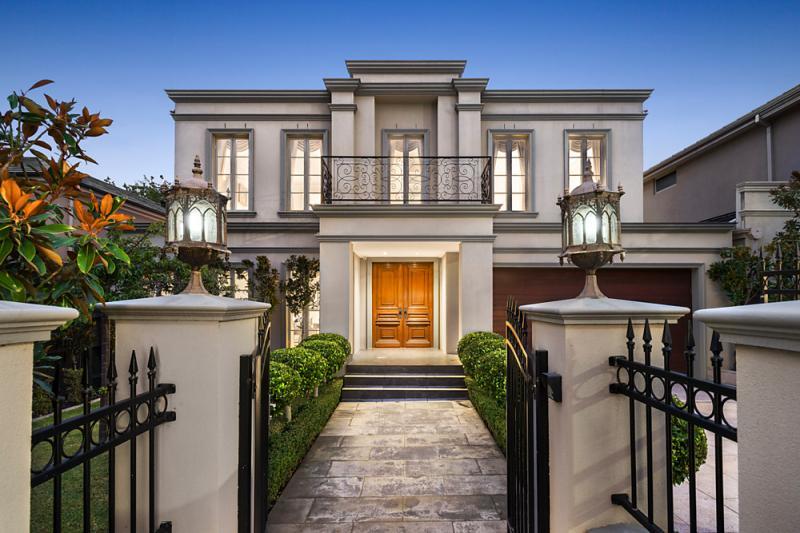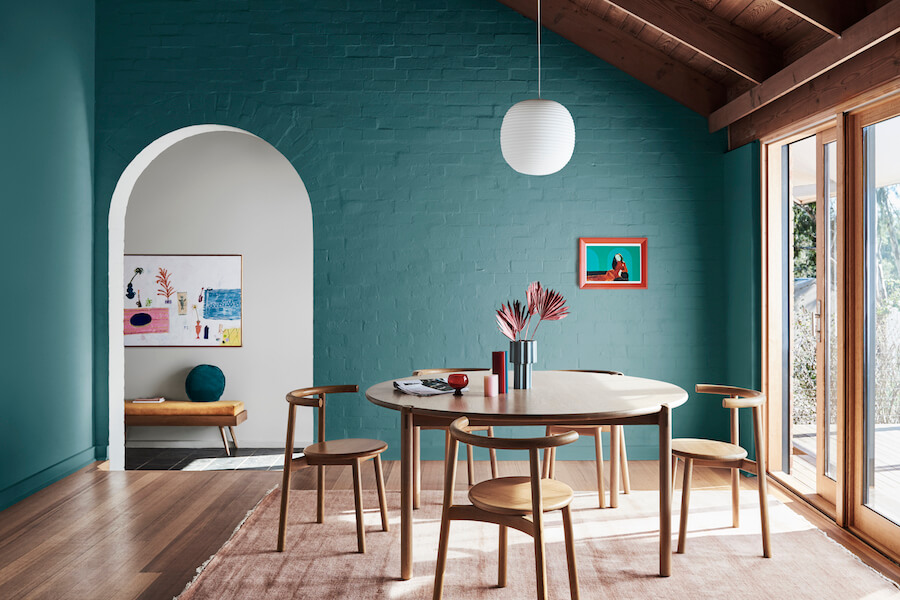With Chinese investors snapping up Australian property left right and centre, it’s important to be aware of a few simple feng shui strategies that can mean the difference between a feng shui-minded client signing on the dotted line or walking away from the deal.
What is feng shui?
Feng shui is an ancient Chinese practice used to create a harmonious environment. Put simply, the aim of feng shui is to assure prosperity, good health and wellbeing for those inhabiting a particular building, garden or home by examining the flow and balance of energy (also known as Qi or Chi) within a space.
Here are a few basic strategies you can use to improve your listings feng shui appeal:
Entryway
For most feng shui-minded buyers having a grand and unobstructed entrance to the home is very important. To create a feng shui friendly front door you need to keep the path to the main entry open and unimpeded to allow for the smooth flow of energy into the house. The best way to achieve this is to remove anything blocking the pathway to the front door, such as rubbish bins, shoes, cracked pot plants and untidy or dead plants.

Doors
It’s a common belief in feng shui that a home gets its energy nourishment via its front door and that it determines how prosperous its occupants will be. So it’s a big no no to have the front and back door directly aligned or a mirror facing the front door. It’s believed that all the good energy flowing into the front of house will be pushed out by the mirror or will go straight out the back door, signifying the house is not good at preserving wealth.
Don’t stress if your listing does have its front and back doors aligned, as with most things in feng shui there are simple fixes you can use to redirect or harness the ‘Qi’ in the home. For example, you could use a round table, a piece of furniture or put up a screen between the two doors to redirect and circulate the good energy through the house.

Kitchen
In feng shui the kitchen is considered the most important room of the home as it nourishes and sustains life. Similar to what most buyers look for in a kitchen, you want to make sure the kitchen of your listing looks as bright, light, airy, spacious, clean and uncluttered as possible. It’s also a good idea to introduce symbols of prosperity and wealth into the kitchen, such as a vase of fresh flowers, a bowl of fruit on the kitchen table or a lush indoor plant in the corner to bring good energy and harmony to the room.

Bedrooms
It’s thought that the good feng shui energy in the bedroom is destroyed by the presence of exercise equipment and electrical goods, as the bedroom is supposed to be a calming, inviting and soothing space. So an easy fix is to request your vendors remove their TV, stereo, computer or treadmill from their bedroom for listing photography and inspections.
It’s also viewed as good feng shui to have a well presented and balanced bed. Meaning that preferably the bed needs to be approachable from both sides, not in direct line with the door and have a bedside table either side.

Address
You’re off to a great start if your listing has a number eight in its address. The word for number eight in Chinese is a homophone for the word for ‘prosperity’ and Chinese clients have been known to pay a premium for it. If this is the case be sure to draw attention to the address and number eight in your property ad and headline to draw in Chinese buyers.
On the contrary, if your listing has a four in its street number you’ll have your work cut out for you. The word for the number four in Chinese is a homophone for the word for ‘death’ and feng shui-minded buyers will do anything and everything they can to avoid an association with the number four.
There are a couple of possible remedies to counter the bad luck associated with the number four. One way is to enclose the number four in a red circle, while some homeowners place the Chinese characters for a lucky saying (such as ‘prosperity in everything’) after the street number on their house or letterbox to counteract the bad luck. Some homeowners even go as far as hanging the street number upside down, but this might prove impractical for buyers trying to find the property for an inspection.
You’re bound to come across some negative Feng Shui elements that are unavoidable in your listings from time to time. At the end of the day the most important thing you can do is to make your listing feel as comfortable and inviting as possible, which is what feng shui is all about.
Feng shui-driven buyers will generally appreciate any steps and measures you take in trying to understand their beliefs and culture. Do you use any other feng shui secrets when staging your listings? Please share them below.







I understand a mirror in the hallway is good, but you must make sure that when you are looking at it from the other end of the hallway it doesn’t "cut off your head" in the view. Also, where you have your kitchen hot plates, the back splash should be reflective so you can see behind you while using the stove top. Love this topic, would like to learn more. Looking forward to future comments. 🙂